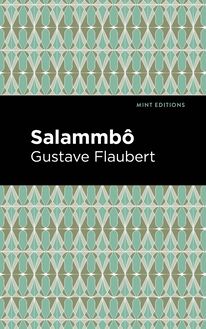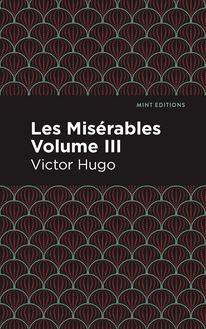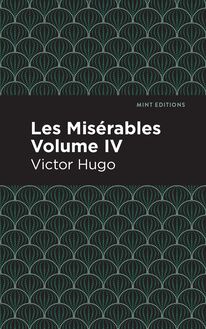-
 Univers
Univers
-
 Ebooks
Ebooks
-
 Livres audio
Livres audio
-
 Presse
Presse
-
 Podcasts
Podcasts
-
 BD
BD
-
 Documents
Documents
-
- Cours
- Révisions
- Ressources pédagogiques
- Sciences de l’éducation
- Manuels scolaires
- Langues
- Travaux de classe
- Annales de BEP
- Etudes supérieures
- Maternelle et primaire
- Fiches de lecture
- Orientation scolaire
- Méthodologie
- Corrigés de devoir
- Annales d’examens et concours
- Annales du bac
- Annales du brevet
- Rapports de stage
La lecture à portée de main
Vous pourrez modifier la taille du texte de cet ouvrage
Découvre YouScribe en t'inscrivant gratuitement
Je m'inscrisDécouvre YouScribe en t'inscrivant gratuitement
Je m'inscrisEn savoir plus
Vous pourrez modifier la taille du texte de cet ouvrage
En savoir plus

Description
Martín Rivas (1862) is a novel by Alberto Blest Gana. Regarded as the first Chilean novel, Martín Rivas is a powerful story of romance, class, and national unity from an author who served for decades as a diplomat and ambassador for Chile. Inspired by the social realism of Honoré de Balzac, Blest Gana retains his European roots while remaining true to the emerging culture of his country. Martín Rivas has always feared the walls closing in. Born and raised in a poor mining community, he sees the limits placed on the lives of his friends and family. Generational poverty, instability, and bad health plague the workers of northern Chile, and he dreams of something more for his life. With his father’s approval, Rivas travels to Santiago to take a job as a servant. Working in the home of a wealthy aristocrat, he does his best to acclimate himself to the manners and desires of the rich, but ultimately loses focus to his employer’s beautiful daughter. Madly in love, he feels the walls inch closer once again. How will he reconcile his emotions with society’s disapproval of relationships between members of opposing classes? How will he convince a man who controls his livelihood to allow him to court his own daughter? As he agonizes over his newly complicated reality, Rivas recalls how much he has overcome and wonders if it was worth the endless struggle. With a beautifully designed cover and professionally typeset manuscript, this edition of Alberto Blest Gana’s Martín Rivas is a classic of Chilean literature reimagined for modern readers.
Sujets
Informations
| Publié par | Mint Editions |
| Date de parution | 21 mai 2021 |
| Nombre de lectures | 0 |
| EAN13 | 9781513287577 |
| Langue | English |
| Poids de l'ouvrage | 1 Mo |
Informations légales : prix de location à la page 0,0500€. Cette information est donnée uniquement à titre indicatif conformément à la législation en vigueur.
Extrait
Martín Rivas
Alberto Blest Gana
Martín Rivas was first published in 1862.
This edition published by Mint Editions 2021.
ISBN 9781513282558 | E-ISBN 9781513287577
Published by Mint Editions®
minteditionbooks.com
Publishing Director: Jennifer Newens
Design & Production: Rachel Lopez Metzger
Translated By: Mrs. Charles Whitham
Project Manager: Micaela Clark
Typesetting: Westchester Publishing Services
To His Excellency
S EÑOR D ON A LBERTO B LEST - Ġ ANA ,
Ex-Chilian Minister and Envoy-Extraordinary to London, Paris, Rome, Etc.
To you, my dear Cousin Alberto, I affectionately dedicate this translation of your celebrated novel “Martin Rivas.”
It has been difficult to convey, in a translation, the charm of a book, that has been and still is, the delight of many thousands of readers. “Martin Rivas” is known and beloved not only over all South America, but wherever the Spanish language is spoken.
It may be said that as a rule, a heavy curtain hangs between the English reader and the beauties of a foreign literature; this translation of “Martin Rivas” has lifted a corner of the curtain, let us hope that the glimpse it affords may awaken a desire to know more of the treasures of poetry and prose that lie on the other side.
November, 1916
C ONTENTS I II III IV V VI VII VIII IX X XI XII XIII XIV XV XVI XVII XVIII XIX XX XXI XXII XXIII XXIV XXV XXVI XXVII XXVIII XXIX XXX XXXI XXXII XXXIII XXXIV XXXV XXXVI XXXVII XXXVIII XXXIX XL XLI XLII XLIII XLIV XLV XLVI XLVII XLVIII XLIX L LI LII LIII LIV LV LVI LVII LVIII LIX LX LXI LXII LXIII LXIV LXV
I
At the beginning of the month of July, 1850, a young man of twenty-two or twenty-three crossed the courtyard of a beautiful house in Santiago.
His clothes and his appearance were far from resembling the appearance and the dress of the smart young men of the city, everything about him showed that he came from the country, and that it was the first time he had been in Santiago. His black trousers fastened round the knees with leather straps, in the style of 1842 and ’43, his coat with short and narrow sleeves, his black satin waistcoat with large pointed revers forming a sharp angle, and making a straight line with the knee of the trousers, his hat of a peculiar shape, and his boots tied to his ankles by means of black bootstrings, made up the old-fashioned costume, in which country-people from time to time appear in the streets of the capital.
The manner in which the young man approached a lackey who, regarding him superciliously, lounged on the threshold of a door at the entrance of the first patio, showed the timidity that some people experience when entering an unknown place, uncertain of what reception to expect.
When the young countryman found himself near the servant, who continued observing him, he saluted him, which the other acknowledged with a patronizing air, probably suggested by the humble appearance of the stranger.
“Is this the house of Don Damaso Encina?” he asked, in a voice which tried to hide the annoyance caused by the insolence of the other’s salute.
“It is,” answered the servant.
“Will you tell him that a gentleman wishes to speak to him?”
At the word “gentleman,” the servant made an attempt to conceal the mocking smile which was visible on his lips.
“And what is your name?” he asked in a surly tone.
“Martin Rivas,” replied the countryman, trying to repress his irritation, although he was unable to control its expression in his eyes.
“Wait, then,” said the servant, and slowly turned to enter the house. At this moment the clock struck twelve.
We will take the opportunity of the servant’s departure to make you better acquainted with the young man who has just called himself Martin Rivas. He was well-made and of medium height. His black eyes, without being very large, drew attention on account of the look of sadness they gave to his expression; their regard was thoughtful and pensive, and this was enhanced by the dark shadows which encircled them and which harmonized with the paleness of his face. A slight black moustachio on his upper lip which also shaded the rather prominent line of his under lip, gave him an air of resolution, an air which helped to increase the appearance of hauteur with which he carried his head, which was covered thickly with chestnut hair, judging from what could be seen of it from under the brim of his hat. Altogether he had an appearance of distinction that contrasted strangely with the poverty of his clothes, and it was easy to see that, properly dressed, he would be a handsome man in the eyes of those who consider that fine clothes are as necessary to a good appearance as a good complexion and regular features.
Martin did not move from the spot where he had first spoken to the servant, and remained quietly contemplating the walls of the patio, beautifully decorated with frescoes, and the windows, embellished with gilt mouldings around the glass panes. After a time he became impatient at the delay, and his eyes wandered inattentively from one object to another.
At last the door opened and the same servant appeared.
“You are to come in,” he said.
Martin followed the servant to a door at which he stopped.
“You go in here,” said the servant, pointing to the door.
Martin Rivas crossed the threshold and faced a man who, by his aspect, appeared to be, according to the significant French phrase, “between the two ages,” that is to say he was on the eve of old age without having yet arrived at it. His black suit, his well-starched collar, the shininess of his boots, showed the methodical man, who regulates his person as well as his life by invariable rule. His look revealed nothing, he had none of the characteristic traces so prominent in some faces, by which an observer can divine in a great measure the character of an individual.
Perfectly shaven and groomed, the face and the style of this man manifested that extreme particularity about cleanliness was one of his rules of conduct. At the sight of Martin he raised his skull-cap, and came forward with one of those looks which are equivalent to a question. The young man thus interpreted it, and made a slight bow saying—
“Se ñ or Don Encina?”
“Yes, Se ñ or, at your service,” he replied.
Martin took from his pocket a letter, which he placed in the hand of Don Damase, with these words, “Have the kindness to read this letter.”
“Ah! are you Martin?” said Don Encina, reading the signature, having leisurely broken the seal. “And how is your father?”
“He is dead,” replied Martin, sadly.
“Dead!” repeated Don Encina, with surprise. Then as if struck by a sudden idea he added—
“Sit down, Martin, excuse my not having already offered you a chair. And this letter—?”
“Have the kindness to read it,” answered Martin.
Don Encina approached a writing-table, laid the letter on it, took up a pair of spectacles which he carefully polished with his handkerchief, and placed them on his nose. Whilst seating himself he glanced over them at Martin.
“I cannot read without glasses,” he said, as an apology for the time he had taken with his preparations. Then he began to read the letter which was as follows:—
M Y D EAR AND H ONOURED S IR ,
“I feel myself seriously ill, and desire before God calls me to His divine tribunal, to recommend to you my son, who soon will be the only support of my unfortunate family. I have very small means, and have made my last arrangements, so that after my death my wife and my children may be able to do the utmost possible with the little that I have been able to leave them. With the interest of my small capital my family would have to exist in poverty, to be able to give Martin what is necessary for him to finish his studies as a lawyer in Santiago. According to my calculations, he will be only able to receive 20 pesos a month, and as it would be impossible for him to satisfy his absolute necessities with such a small sum, I have thought of you, and take the liberty of asking you if you will receive him in your house until he is able to support himself. This boy is my sole hope, and if you will do him the kindness that I humbly beg for him, you will have the blessing of his mother on earth and mine in heaven, if God will grant me His eternal glory after death.
“Dispose of your humble servant who kisses your feet.
J OSE R IVAS
He took off his spectacles with the same care as he had put them on, and replaced them in the same drawer they had previously occupied.
“You know what your father has asked me in this letter?” he asked, rising from his seat.
“Yes, sir,” replied Martin.
“And how did you come from Copiapo?”
“On the deck of a ship,” replied Martin, with a certain pride.
“Friend,” said Don Encina, “your father was a good man and I am indebted to him for some services, and it will please me to repay them to his son. I have two rooms at the top of this house and they are at your disposal. Have you any luggage?”
“Yes, Se ñ or.”
“Where is it?”
“In the Inn of Santa Domingo.”
“The servant will fetch them, you will give him the address.”
Martin rose from his seat, and Don Damaso called the man-servant.
“Follow this gentleman, and carry back whatever he gives you.”
“Se ñ or,” said Martin, “I do not know how to thank you for your goodness.”
“Well, well, Martin,” replied Don Damaso, “here you must make yourself at home. Bring your luggage and instal yourself upstairs. I dine at five; come a little before that hour, that I may introduce you to my wife.”
Martin said a few grateful words and went away.
“Juana, Juana!” cried Don Damaso, raising his voice so as to be heard in the next room, “let them bring me the newspapers.”
II
T he house at which we have seen Martin Rivas present himself was inhabited by a family composed of Don Damaso Encina, his wife, a daughter of nineteen years, and a son of twenty-three, and three younger children, who at present were receiving their education at the college of the Franciscan
-
 Univers
Univers
-
 Ebooks
Ebooks
-
 Livres audio
Livres audio
-
 Presse
Presse
-
 Podcasts
Podcasts
-
 BD
BD
-
 Documents
Documents
-
Jeunesse
-
Littérature
-
Ressources professionnelles
-
Santé et bien-être
-
Savoirs
-
Education
-
Loisirs et hobbies
-
Art, musique et cinéma
-
Actualité et débat de société
-
Jeunesse
-
Littérature
-
Ressources professionnelles
-
Santé et bien-être
-
Savoirs
-
Education
-
Loisirs et hobbies
-
Art, musique et cinéma
-
Actualité et débat de société
-
Actualités
-
Lifestyle
-
Presse jeunesse
-
Presse professionnelle
-
Pratique
-
Presse sportive
-
Presse internationale
-
Culture & Médias
-
Action et Aventures
-
Science-fiction et Fantasy
-
Société
-
Jeunesse
-
Littérature
-
Ressources professionnelles
-
Santé et bien-être
-
Savoirs
-
Education
-
Loisirs et hobbies
-
Art, musique et cinéma
-
Actualité et débat de société
- Cours
- Révisions
- Ressources pédagogiques
- Sciences de l’éducation
- Manuels scolaires
- Langues
- Travaux de classe
- Annales de BEP
- Etudes supérieures
- Maternelle et primaire
- Fiches de lecture
- Orientation scolaire
- Méthodologie
- Corrigés de devoir
- Annales d’examens et concours
- Annales du bac
- Annales du brevet
- Rapports de stage




















